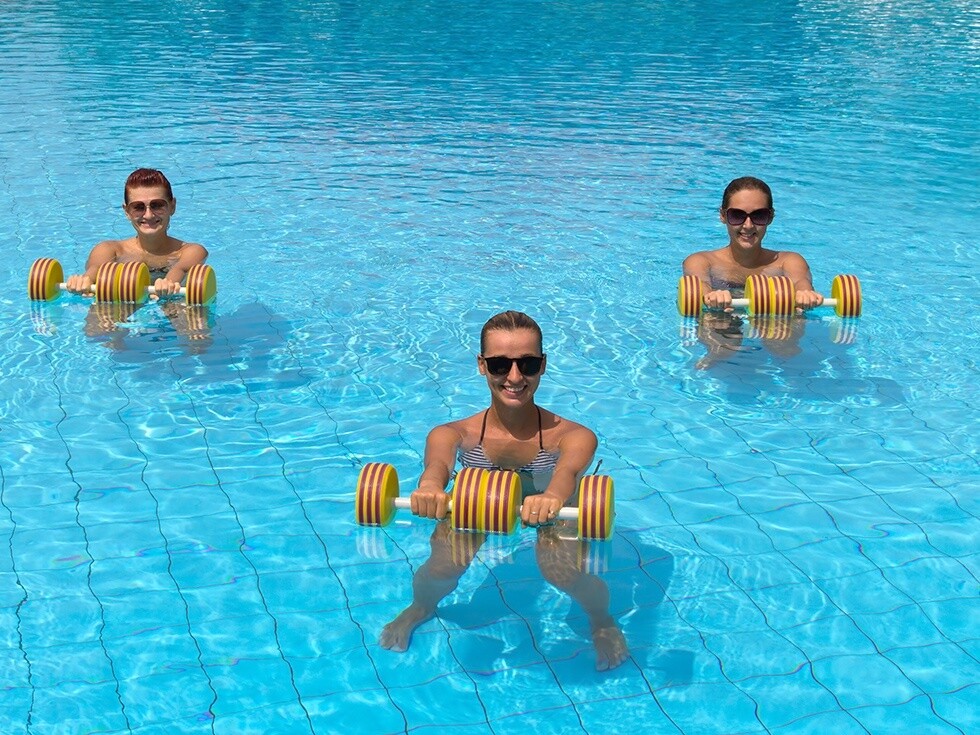Swimming in the pool is more than just a fun way to cool off and spend an afternoon with friends. There are many health benefits unique to exercising in water. People recovering from injuries or with developed health issues may have a difficult time finding exercises that do not worsen their conditions, but trying those same exercises in the water can lower the harmful effects of land-based workouts. Check out the many benefits of aquatic exercise to see how staying in shape can be easy and fun!
Low Impact on Joints
For individuals with injuries and joint issues, traditional exercises such as running and biking can be painful and even add to damage. Swimming and other water exercises utilize water’s buoyancy to take away the harsh impact that many land-based exercises have. Gravity’s effects are not as intense when you are in water and 50 to 90 percent of your body is supported, so the harmful pressures from movement are not as strong.
Alternative Form of Resistance
Rather than using pushing and pulling motions, water exercises require a through movement that offers a form of resistance from all directions simultaneously. Depending on how fast your movements are, the resistance in water is up to 42 times greater than air. You can adjust your weight training instantly just by slowing down or speeding up your movements.
Improve Flexibility
The natural resistance of water can also help with flexibility. As the muscles adjust to the new directions of movement, joint range gradually increases. One study found there was a significant increase in flexibility after aquatic exercise for a group of adults.
Fun Way to Burn Calories
Aquatic exercise gets the muscles flexing and the blood pumping without the harsh stresses of traditional workouts. The low impact makes it easy for people to get moving, often without realizing just how hard they are working. In this way, exercising in water is an excellent way to burn calories while having a good time. It can also be turned into an individual or communal activity, depending on your exercising preferences.
Efficient Heart Rate
When your body is underwater, the water pushes from all sides with equal pressure to help with blood circulation. The blood circulation assistance is especially good for anyone with heart disease or recovering from a heart issue. The heart rate typically slows by 10 to 15 beats per minute during aquatic exercise compared to the same exercise done on land without lessening the benefits.
Stress Relief
Exercise, in general, is proven to lower stress levels, and the act of floating can have anxiety-reducing effects as well. When combining exercise and floating, the result is an activity with super stress-relief powers. The low impact on the body, natural movement resistance, and lowered blood pressure can have meditative effects similar to yoga that calm and center the mind.
The best way to test the benefits of aquatic exercise is to get in the water and move around! Try attending a community class or watching a video to get some ideas or simply swim laps and see how it feels. You may not notice the benefits right away, but, in time, you may start to notice improvements in strength, flexibility and general well-being.
